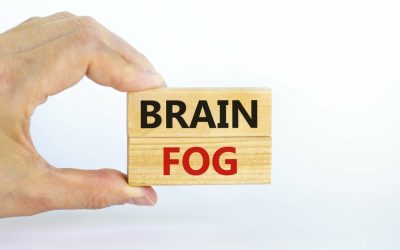If you do have any symptoms, then alcohol may already be a cause for concern. The more symptoms you have, the more urgent the need for change. A healthcare professional can look at the number, pattern, and severity of symptoms to see whether AUD is present and help you decide the best course of action. To determine whether a person has AUD, healthcare professionals refer to the criteria from the Diagnostic and Statistical Manual of Mental Disorders, 5th edition, text revision (DSM-5-TR). Medically managed withdrawal or detoxification can be safely carried out under medical guidance. Medications, such as benzodiazepines, are given to help control withdrawal symptoms.
The symptoms, genetics, and brain structure related to mental health conditions can increase the risk of developing alcohol use disorder. Some people with mental health concerns may self-medicate with alcohol. Primary care physicians, nurse practitioners, and how to treat alcoholism pharmacists are pivotal in educating patients and raising awareness about the detrimental effects of alcohol consumption. Within inpatient settings, it is essential to offer counseling services, especially to individuals who are identified as having AUDs.
Diagnosis
Patients may be asymptomatic or present with hypertension or insomnia in the early stages. During pregnancy, the fetal liver metabolizes alcohol slower due to incomplete expression of enzymes CYP2E1 and ADH. As a result, the developing fetus is exposed to alcohol for a prolonged period, increasing the risks of fetal alcohol spectrum disorders.

The second is a medicine to reduce any urge you may have to drink. The most common medicines used for this are acamprosate and naltrexone. If you’re concerned about your drinking or someone else’s, a good first step is to see a GP. Getting early treatment and staying sober gives you the best chances of recovering. The earlier you start treatment, the more likely you can reverse your symptoms. American Addiction Centers (AAC) is committed to delivering original, truthful, accurate, unbiased, and medically current information.
Try to Go to Bed and Wake Up at the Same Times Each Day
There are several approaches available for treating alcohol problems. Now may be a good time to assess your drinking and consider making a change. Alcohol use disorder can look different in each person, but there are some symptoms you can watch out for. The percent alcohol by volume (alc/vol) for https://ecosoberhouse.com/article/ distilled spirits is listed on bottle labels and may be found online as well. It is half the «proof,» such that 80-proof spirits is 40% alc/vol. For comparison, regular beer is 5% alcohol by volume (alc/vol), table wine is about 12% alc/vol, and straight 80-proof distilled spirits is 40% alc/vol.
- Yes, you can reverse some of them with substance abuse treatment.
- In addition, sleep disturbances are also frequently reported.
- They may know that their alcohol use negatively affects their lives, but it’s often not enough to make them stop drinking.
- People with alcohol use disorder can’t stop drinking, even when it causes problems, emotional distress or physical harm to themselves or others.
If you think you or someone you know has alcohol use disorder, you can find help and resources. If you’re experiencing alcohol dependence, stopping alcohol use suddenly can cause dangerous effects, such as seizures. Although they have fewer calories, many light beers have almost as much alcohol as regular beer—about 85% as much, or 4.2% versus 5.0% alcohol by volume, on average. By Buddy T
Buddy T is a writer and founding member of the Online Al-Anon Outreach Committee with decades of experience writing about alcoholism.
Is alcohol use disorder a disease?
Alcohol is a central nervous system depressant, which means it can slow down brain activity. This can affect a person’s mood, self-control, and behavior. They may neglect family obligations, child care duties, schoolwork, or employment. People may want a drink so much that it is all they think about. In other instances, they may spend time recovering from excess drinking.
- People with a parent, grandparent, or other close relative with alcoholism have a higher risk for becoming dependent on alcohol.
- This often leads to «relief drinking» to avoid withdrawal symptoms.
- Taking an alcoholism screening quiz can help you determine whether you have the symptoms of an alcohol use disorder.
- For some people, changes in the brain can affect mood and result in depression.
- Someone with the disorder may spend a great deal of time drinking or thinking about drinking.

